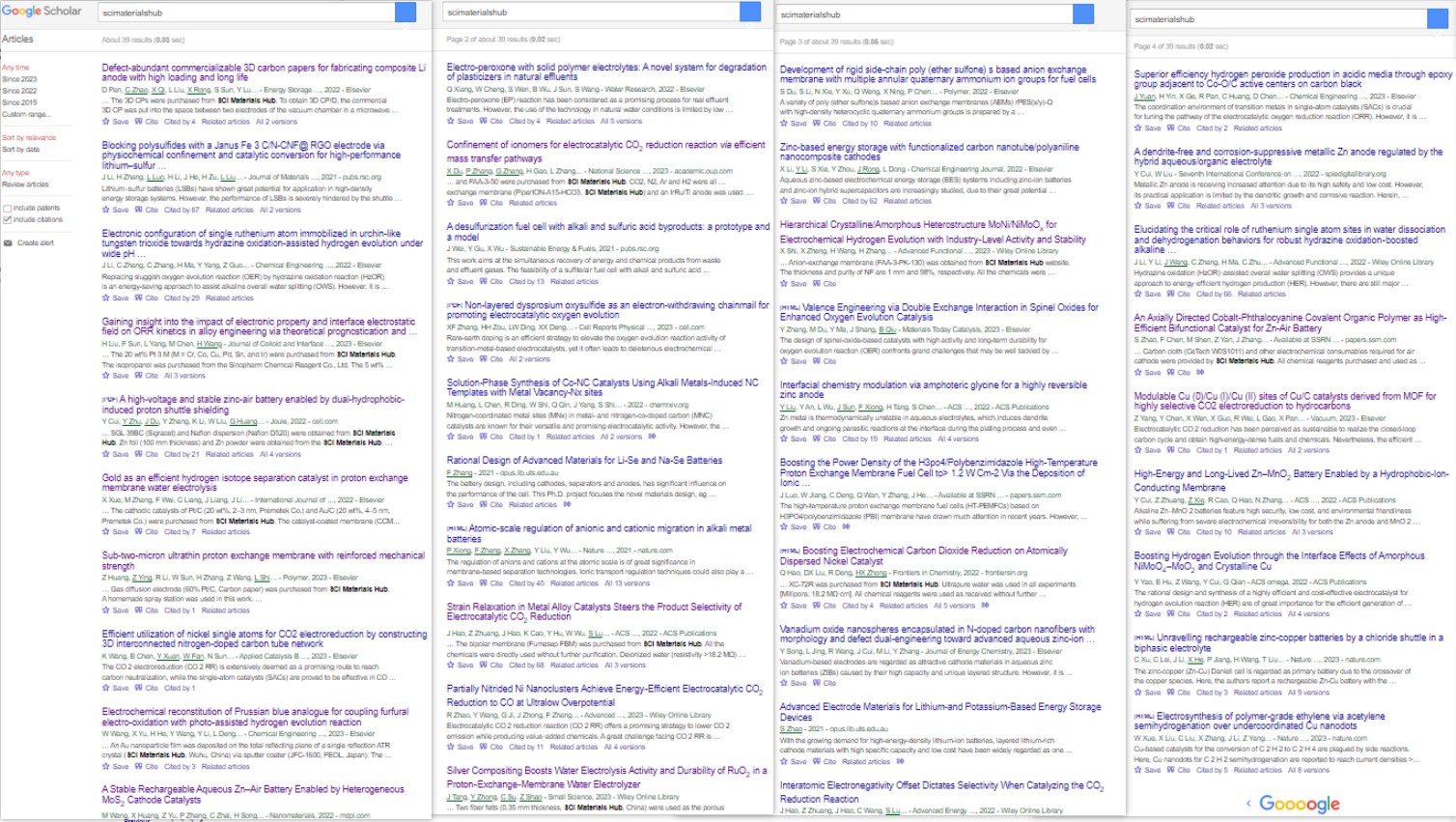
💎 High-Performance Polybenzimidazole (PBI) Resin Series
Celazole® PBI Resin Powders & Solutions (MW 35,000 / 60,000)
The Celazole® PBI resin series includes both high molecular weight powders and ready-to-use solutions, designed for advanced applications in extreme thermal and chemical environments. Whether used for high-performance proton exchange membranes, heat-resistant coatings, or as a key component in composite materials, Celazole® PBI is widely recognized for its outstanding thermal stability, mechanical strength, and chemical resistance.
Powder products are compatible with multiple solvent systems, giving users flexibility in dissolution and formulation for film casting, coating, spraying, and composite fabrication. Solution products are ready-to-apply formulations with excellent film-forming ability and substrate adhesion, making them ideal for high-temperature fuel cell membranes, electrical insulation layers, and wear-resistant protective coatings.
All Celazole® PBI products feature a high glass transition temperature (~427 °C), exceptional chemical resistance, and thermal decomposition stability, ensuring reliable performance under the most demanding operating conditions. These properties make them the ideal choice for research and industrial applications requiring durability and reliability.

| Parameter | PBI Resin Powder (MW 35,000) | PBI Resin Powder (MW 60,000) |
|---|---|---|
| Form | Semi-coarse powder | Semi-coarse powder |
| Molecular Weight (Mw) | 35,000 | 60,000 |
| Repeat Unit (g/mol) | 308 | 308 |
| Glass Transition Temperature Tg (°C) | 427 | 427 |
| Color | Golden | Golden |
| Solubility | Soluble in NMP, DMAc, conc. H₂SO₄, HCl, etc. | Soluble in NMP, DMAc, conc. H₂SO₄, HCl, etc. |
| Applications | Film preparation, PBI coatings, composites, slurry | Film preparation, PBI coatings, composites, slurry |
| Key Features | Better solubility, versatile for various processes | Longer chains, improved mechanical strength, higher chemical resistance |
| Parameter | PBI Resin Solution (MW 35,000) | PBI Resin Solution (MW 60,000) |
|---|---|---|
| Form | High-molecular PBI polymer solution | High-molecular PBI polymer solution |
| Molecular Weight (Mw) | 35,000 | 60,000 |
| Glass Transition Temperature Tg (°C) | 427 | 427 |
| Applications | Film casting, electrode membranes, PBI functional coatings | Film casting, electrode membranes, PBI functional coatings |
| Coating Features | Thermal stability, electrical insulation, low friction, reworkable | Higher mechanical strength, superior chemical resistance, reworkable |
| Substrate Adhesion | Steel, stainless steel, aluminum, copper, glass, ceramics, plastics | Steel, stainless steel, aluminum, copper, glass, ceramics, plastics |
| Solvent Systems | Polar solvents such as DMAc, NMP | Polar solvents such as DMAc, NMP |
| Target Users | Laboratory R&D, customized membranes or composites | High-end membrane fabrication, heavy-duty or harsh conditions |
📚 References
Journal of Power Sources
Boosting the power density of the H₃PO₄/PBI HT-PEMFC to >1.2 W cm⁻² via acid-polymer layers on CL
https://doi.org/10.1016/j.jpowsour.2023.233455
ACS Sustainable Chemistry & Engineering
Lignin-Derived Sustainable Cationic Polymers for Efficient HT-PEMFC
https://doi.org/10.1021/acssuschemeng.3c03526
✍️ Suggested Citation
“PBI-55 (MW 60,000), a Polybenzimidazole Copolymer membrane with a thickness of 55 μm, was obtained from SCI Materials Hub.”
🌍 International Orders & Shipping
📧 Email: contact@scimaterials.cn
📞 WhatsApp & Tel: +86 153-7569-8751
🔗 Place quick orders on our eBay / Amazon stores.
🌐 We ship worldwide via DHL, FedEx, UPS, SF-Express, or other requested carriers.
📦 Bulk quantities with discount available upon request.
💳 Payment methods accepted: Bank Wire Transfer, PayPal, Credit Card (via Taobao), Alipay, WeChat Pay
📑 Celazole® PBI Resin Powder – Specifications & Price List
| Weight | 1 g | 2 g | 5 g | 10 g |
|---|---|---|---|---|
| Celazole® PBI Resin Powder (MW 35,000) | $29 | $50 | $109 | $197 |
| Celazole® PBI Resin Powder (MW 60,000) | $29 | $50 | $109 | $197 |
📑 Celazole® PBI Resin Solutions – Specifications & Price List
(Molecular Weight, Solvent, and Concentration)
| Molecular Weight | Solvent | Resin wt% | 1 ml | 2 ml | 5 ml | 10 ml | 25 ml | 50 ml |
|---|---|---|---|---|---|---|---|---|
| PBI Resin Solution (MW 35,000) | DMAC | 5 wt% | $12 | $21 | $43 | $71 | $157 | $286 |
| 10 wt% | $21 | $41 | $83 | $140 | $300 | $557 | ||
| 15 wt% | $31 | $60 | $126 | $200 | $457 | $829 | ||
| NMP | 5 wt% | $12 | $21 | $43 | $71 | $157 | $286 | |
| 10 wt% | $21 | $41 | $83 | $140 | $300 | $557 | ||
| 15 wt% | $31 | $60 | $126 | $200 | $457 | $829 | ||
| PBI Resin Solution (MW 60,000) | DMAC | 5 wt% | $14 | $26 | $50 | $86 | $186 | $343 |
| 10 wt% | $26 | $49 | $97 | $164 | $350 | $643 | ||
| 15 wt% | $37 | $71 | $143 | $236 | $529 | $957 | ||
| NMP | 5 wt% | $14 | $26 | $50 | $86 | $186 | $343 | |
| 10 wt% | $26 | $49 | $97 | $164 | $350 | $643 | ||
| 15 wt% | $37 | $71 | $143 | $236 | $529 | $957 |
⚠️ Notes
High-concentration (10–15 wt%) solutions may contain insoluble matter; stir or filter thoroughly before use.
NMP-based solutions may solidify at room temperature; re-melt by gentle heating before application.
DMAC is more recommended than NMP.
Partial references citing our materials (from Google Scholar)

Carbon Dioxide Reduction
1. ACS Nano Strain Relaxation in Metal Alloy Catalysts Steers the Product Selectivity of Electrocatalytic CO2 Reduction
The bipolar membrane (Fumasep FBM) in this paper was purchased from SCI Materials Hub, which was used in rechargeable Zn-CO2 battery tests. The authors reported a strain relaxation strategy to determine lattice strains in bimetal MNi alloys (M = Pd, Ag, and Au) and realized an outstanding CO2-to-CO Faradaic efficiency of 96.6% with outstanding activity and durability toward a Zn-CO2 battery.
2. Front. Chem. Boosting Electrochemical Carbon Dioxide Reduction on Atomically Dispersed Nickel Catalyst
In this paper, Vulcan XC-72R was purchased from SCI Materials Hub. Vulcan XC 72R carbon is the most common catalyst support used in the anode and cathode electrodes of Polymer Electrolyte Membrane Fuel Cells (PEMFC), Direct Methanol Fuel Cells (DMFC), Alkaline Fuel Cells (AFC), Microbial Fuel Cells (MFC), Phosphoric Acid Fuel Cells (PAFC), and many more!
3. Adv. Mater. Partially Nitrided Ni Nanoclusters Achieve Energy-Efficient Electrocatalytic CO2 Reduction to CO at Ultralow Overpotential
An AEM membrane (Sustainion X37-50 Grade RT, purchased from SCI Materials Hub) was activated in 1 M KOH for 24 h, washed with ultra-purity water prior to use.
4. Adv. Funct. Mater. Nanoconfined Molecular Catalysts in Integrated Gas Diffusion Electrodes for High-Current-Density CO2 Electroreduction
In this paper (Supporting Information), an anion exchanged membrane (Fumasep FAB-PK-130 obtained from SCI Materials Hub (www.scimaterials.cn)) was used to separate the catholyte and anolyte chambers.
SCI Materials Hub: we also recommend our Fumasep FAB-PK-75 for the use in a flow cell.
5. Appl. Catal. B Efficient utilization of nickel single atoms for CO2 electroreduction by constructing 3D interconnected nitrogen-doped carbon tube network
In this paper, the Nafion 117 membrane was obtained from SCI Materials Hub.
In this paper, Proton exchange membrane (Nafion 117), Nafion D520, and Toray 060 carbon paper were purchased from SCI Materials Hub.
7. National Science Review Confinement of ionomer for electrocatalytic CO2 reduction reaction via efficient mass transfer pathways
An anion exchange membrane (PiperION-A15-HCO3) was obtained from SCI Materials Hub.
8. Catalysis Communications Facilitating CO2 electroreduction to C2H4 through facile regulating {100} & {111} grain boundary of Cu2O
Carbon paper (TGPH060), membrane solution (Nafion D520), and ionic membrane (Nafion N117) were obtained from Wuhu Eryi Material Technology Co., Ltd (a company under SCI Materials Hub).
Batteries
1. J. Mater. Chem. A Blocking polysulfides with a Janus Fe3C/N-CNF@RGO electrode via physiochemical confinement and catalytic conversion for high-performance lithium–sulfur batteries
Graphene oxide (GO) in this paper was obtained from SCI Materials Hub. The authors introduced a Janus Fe3C/N-CNF@RGO electrode consisting of 1D Fe3C decorated N-doped carbon nanofibers (Fe3C/N-CNFs) side and 2D reduced graphene oxide (RGO) side as the free-standing carrier of Li2S6 catholyte to improve the overall electrochemical performance of Li-S batteries.
This paper used more than 10 kinds of materials from SCI Materials Hub and the authors gave detailed properity comparsion.
The commercial IEMs of Fumasep FAB-PK-130 and Nafion N117 were obtained from SCI Materials Hub.
Gas diffusion layers of GDL340 (CeTech) and SGL39BC (Sigracet) and Nafion dispersion (Nafion D520) were obtained from SCI Materials Hub.
Zn foil (100 mm thickness) and Zn powder were obtained from the SCI Materials Hub.
Commercial 20% Pt/C, 40% Pt/C and IrO2 catalysts were also obtained from SCI Materials Hub.
3. Journal of Energy Chemistry Vanadium oxide nanospheres encapsulated in N-doped carbon nanofibers with morphology and defect dual-engineering toward advanced aqueous zinc-ion batteries
In this paper, carbon cloth (W0S1011) was obtained from SCI Materials Hub. The flexible carbon cloth matrix guaranteed the stabilization of the electrode and improved the conductivity of the cathode.
4. Energy Storage Materials Defect-abundant commercializable 3D carbon papers for fabricating composite Li anode with high loading and long life
The 3D carbon paper (TGPH060 raw paper) were purchased from SCI Materials Hub.
5. Nanomaterials A Stable Rechargeable Aqueous Zn–Air Battery Enabled by Heterogeneous MoS2 Cathode Catalysts
Nafion D520 (5 wt%), and carbon paper (GDL340) were received from SCI-Materials-Hub.
Carbon cloth (W0S1011) and other electrochemical consumables required for air cathode were provided by SCI Materials Hub.
Oxygen Reduction Reaction
1. J. Chem. Eng. Superior Efficiency Hydrogen Peroxide Production in Acidic Media through Epoxy Group Adjacent to Co-O/C Active Centers on Carbon Black
In this paper, Vulcan XC 72 carbon black, ion membrane (Nafion N115, 127 μL), Nafion solution (D520, 5 wt%), and carbon paper (AvCarb GDS 2230 and Spectracarb 2050A-1050) were purchased from SCI Materials Hub.
2. Journal of Colloid and Interface Science Gaining insight into the impact of electronic property and interface electrostatic field on ORR kinetics in alloy engineering via theoretical prognostication and experimental validation
The 20 wt% Pt3M (M = Cr, Co, Cu, Pd, Sn, and Ir) were purchased from SCI Materials Hub. This work places emphasis on the kinetics of the ORR concerning Pt3M (M = Cr, Co, Cu, Pd, Sn, and Ir) catalysts, and integrates theoretical prognostication and experimental validation to illuminate the fundamental principles of alloy engineering.
Water Electrolysis
1. International Journal of Hydrogen Energy Gold as an efficient hydrogen isotope separation catalyst in proton exchange membrane water electrolysis
The cathodic catalysts of Pt/C (20 wt%, 2–3 nm) and Au/C (20 wt%, 4–5 nm) were purchased from SCI Materials Hub.
2. Small Science Silver Compositing Boosts Water Electrolysis Activity and Durability of RuO2 in a Proton-Exchange-Membrane Water Electrolyzer
Two fiber felts (0.35 mm thickness, SCI Materials Hub) were used as the porous transport layers at both the cathode and the anode.
3. Advanced Functional Materials Hierarchical Crystalline/Amorphous Heterostructure MoNi/NiMoOx for Electrochemical Hydrogen Evolution with Industry-Level Activity and Stability
Anion-exchange membrane (FAA-3-PK-130) was obtained from SCI Materials Hub website.
Fuel Cells
1. Polymer Sub-two-micron ultrathin proton exchange membrane with reinforced mechanical strength
Gas diffusion electrode (60% Pt/C, Carbon paper) was purchased from SCI Materials Hub.
Characterization
1. Chemical Engineering Journal Electrochemical reconstitution of Prussian blue analogue for coupling furfural electro-oxidation with photo-assisted hydrogen evolution reaction
An Au nanoparticle film was deposited on the total reflecting plane of a single reflection ATR crystal (SCI Materials Hub, Wuhu, China) via sputter coater.

|
We Provide A Broad Range of Materials, Instruments & Solutions in Advanced Science and Technologies | About Us |



